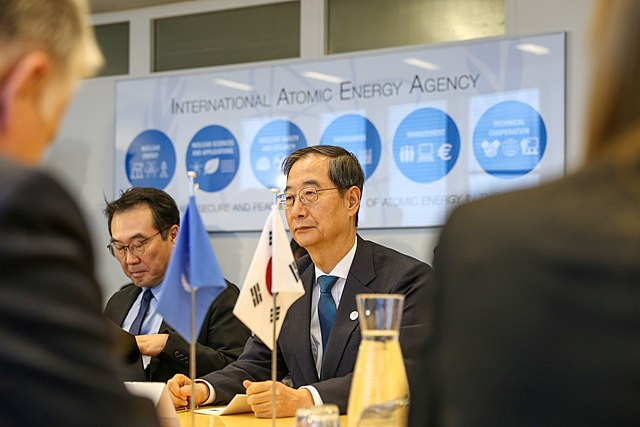South Korea's Constitutional Court on Monday overturned the impeachment of Prime Minister Han Duck-soo, reinstating him as acting president and deepening the political uncertainty surrounding President Yoon Suk Yeol's ongoing impeachment case over his controversial declaration of martial law.
The court's eight-member bench voted 7-1 to strike down the impeachment motion against Han. Five justices ruled that although the motion itself was valid, there were insufficient grounds to remove him from office. Two justices said the motion did not meet the required quorum in parliament, rendering it invalid. One justice supported the impeachment.
Following his reinstatement, Han expressed gratitude to the court for its decision. "I believe that all citizens are clearly speaking out against the highly polarised political sphere," Han said. "I think there is no place for division now. Our country's priority is to move forward."
Han, 75, who has served under five presidents in various leadership roles, emphasized national unity and economic stability. Speaking to reporters, he pledged to focus on "urgent matters," including addressing South Korea's fast-changing global trade environment, and added, "There's no left or right - what matters is the advancement of our nation."
The prime minister's impeachment was triggered by opposition lawmakers' accusations that Han obstructed investigations into Yoon's martial law decree and failed to fill three vacant seats at the Constitutional Court. Critics argued that appointing new justices would have increased the likelihood of upholding President Yoon's impeachment, which requires a two-thirds majority in parliament and approval by at least six of the nine justices.
Han denied involvement in Yoon's declaration of martial law and maintained that his actions did not violate the Constitution. He appeared at the only hearing in February, calling for the court to dismiss the impeachment case.
South Korea has been mired in political turmoil since Yoon, a conservative, declared martial law on December 3, sending hundreds of troops to opposition-controlled institutions including the National Assembly. The decree, which lasted just six hours, was swiftly overturned by lawmakers who managed to convene and vote it down despite security forces attempting to block access to the assembly.
The National Assembly impeached Yoon on December 14, accusing him of violating the Constitution by attempting to suppress parliamentary activities and ordering troops to detain politicians. Han assumed the role of acting president after Yoon's impeachment but was himself suspended after his own impeachment vote on December 27.
While Han's reinstatement has been welcomed by the presidential office, which said the decision "reaffirms that excessive impeachments by the national assembly are reckless and malicious political offensives," opposition lawmakers expressed disappointment. The Democratic Party urged the court to rule quickly on Yoon's impeachment case, which has yet to be decided.
Han's return to office follows a turbulent period that saw his successor as acting president, Finance Minister Choi Sang-mok, appoint two Constitutional Court justices but leave one seat vacant. The court's ruling in Han's favor is not widely viewed as a predictor of the outcome in Yoon's case, as observers note that Han was not a central figure in the martial law decree.
Duyeon Kim, senior analyst at the Center for a New American Security, commented, "Today's verdict will give hope to Yoon's supporters for a similar fate and hope for Yoon's opponents for his ouster. But it's too soon to predict the court's verdict on Yoon because the specific details of both cases and allegations are different."






